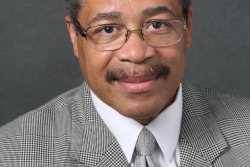Culver City Unified School District officials will soon begin the process of taking the pulse of their constituents and the community at large in order to see if they are amenable to passing a capital improvements bond to repair district facilities.
But how that proposal is sold to the public could be the determining factor between success and failure, says a local political consultant.
Jewett Walker, Jr. has worked on local and statewide ballot initiatives and thinks Culver City residents have been very supportive of taxing themselves in order to have well-funded schools.
“This is a community that has been very supportive of its educational system,” said Walker.
But convincing the public will require more than just asking them to tax themselves again after a series of recent tax measures have come before the electorate over the last two years, Walker believes.
“(The school board) will have to sell the public on how its facilities will have an impact on raising their property values,” he said.
Board member Laura Chardiet told the News the district will hire a consultant to conduct a survey and gather information from the public in order to gauge the interest of passing a bond measure.
The school district has identified several facilities that need an upgrade, including the Robert Frost Auditorium and the football field at Culver City High School. In addition, several other buildings are also in need of repair, due to aging structures.
CCUSD Board President Katherine Paspalis, who announced after a capital improvements workshop last month that the school district would seek a bond to fund the infrastructure project, said the district will solicit the observations of the public as well as explain the reasons for pursuing a bond initiative.
Culver City Chamber of Commerce Steven Rose touched on a subject that he has talked about for decades and what could make the difference in his personal support for a bond measure. “I think a bond measure would probably pass, but I would want to make sure that it was only for construction and that (the school district’s) general fund has enough money for (building) maintenance,” said Rose, a former city councilman.
Deferred maintenance of buildings and infrastructure was a frequent theme sounded by Rose during his tenure on the council from 2000 to 2008. “Buildings are going to need to be painted, are going to need repairs and in some cases might need carpeting, just like a private residence,” he noted. “And governments don’t always set aside money for that.”
Culver City Federation of Teachers President David Mileke agrees with the belief that the city’s voters take education very seriously. “I think the community has shown time and time again that they value our schools,” he said. “They’ve stepped up in the past and there’s no reason to believe that they won’t again.”
If past is prologue, Mileke is correct.
In the late 1990s, Culver City passed a bond measure for the school district and in 2009 approved Measure EE, a parcel tax that raised $1.2 million.
Some supporters of the parcel tax have indicated that they would like to see an extension of the measure, which sunsets next year. If the competing tax levies were to be on the ballot during the same year could prove to be interesting, says Walker, despite residents support for their local schools.
“It would be very difficult to get them both passed at the same time,” he stated.
Rose pointed out while Culver City voters also passed a transient occupancy tax and a sales tax last year, these levies hit those who reside outside the city in their wallets more than local residents.
“Residents of Culver City pay (approximately) 10% of the city’s sales tax and about 53% of the statewide is paid by businesses,” the chamber president noted. “Because of the regional nature of Culver City, big ticket purchases at places like Costco, Westfield Culver City and car dealerships come from non-Culver City residents.”
Walker said it is incumbent on the school board to pay attention to the results of the survey and explain to the voters why the public supports a bond measure, if that is what is gleaned from the polling.
“The message must be carefully crafted based on the polling (from the consultant),” Walker advised.
It is unclear when, if the school board decides to move forward with a bond, when it will be placed on the ballot.
Rose noted during off year elections, when many bond measures appear on the ballot, the turnout is smaller but that can be to the benefit of those in favor of a school bond or parcel tax.
“People who vote and care about schools tend to come out more in (off -year elections) than those who don’t,” he said.
Walker thinks for school board members who are up for reelection in November- Karlo Silbiger, Paspalis and Patricia Siever- campaigning for the bond measure could hold some potential election spoils.
“If you campaign for the bond, you’re also campaigning for yourself,” the political consultant noted.
Walker said the one thing that could hurt selling a bond measure is not tailoring the public narrative to the results of the district’s survey.
“That is mandatory,” he said.
“To do a bond without polling is to court disaster.”

